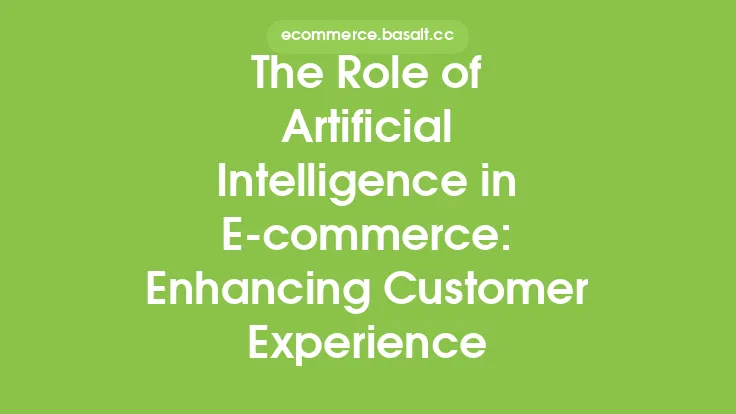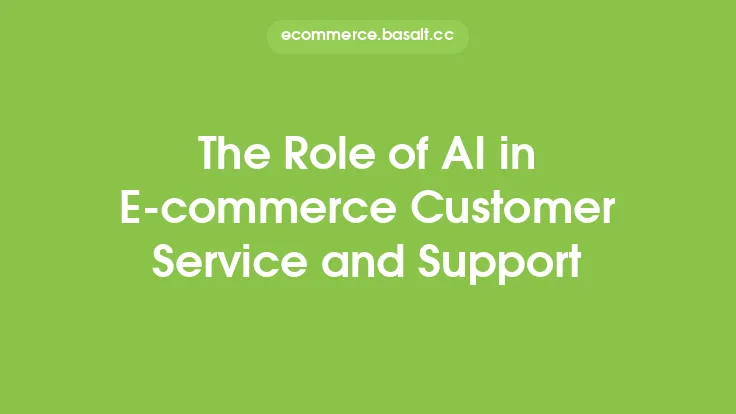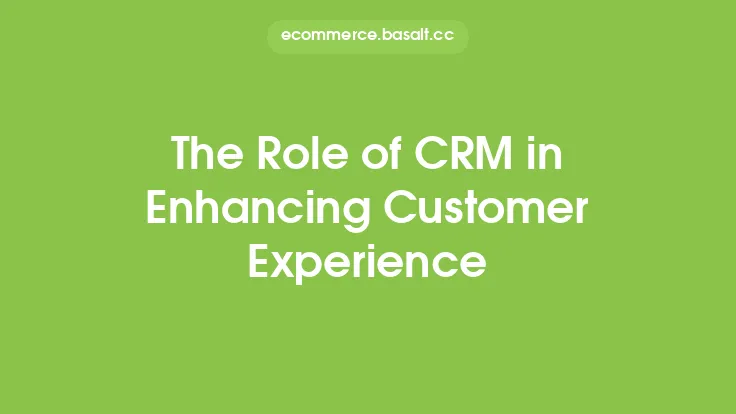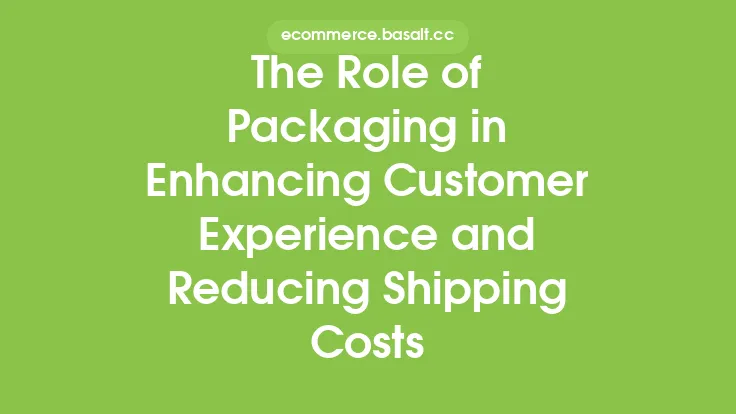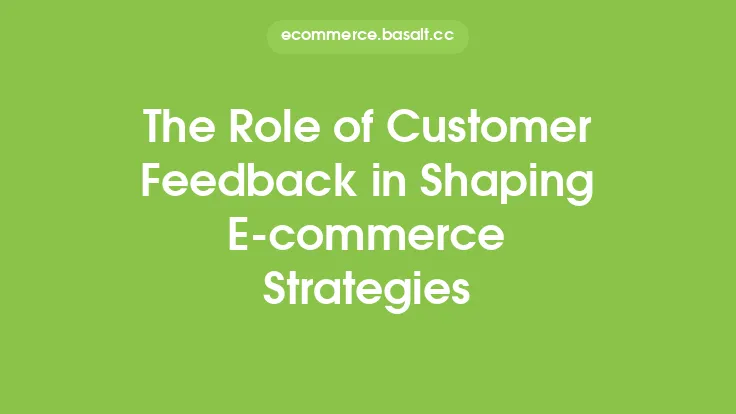The e-commerce industry has witnessed tremendous growth over the years, with more and more businesses shifting their focus to online platforms. As a result, the competition in the e-commerce space has increased, and companies are looking for ways to differentiate themselves and provide a unique customer experience. One way to achieve this is by leveraging automation in e-commerce. Automation can help enhance the customer experience in various ways, from personalized product recommendations to streamlined order fulfillment.
Introduction to E-commerce Automation
E-commerce automation refers to the use of technology to automate repetitive and mundane tasks, such as data entry, inventory management, and order processing. By automating these tasks, businesses can free up resources and focus on more strategic activities, such as marketing and customer engagement. Automation can also help improve the accuracy and efficiency of e-commerce operations, reducing the likelihood of errors and delays.
Benefits of Automation in E-commerce
The benefits of automation in e-commerce are numerous. For one, automation can help improve the speed and efficiency of order fulfillment, ensuring that customers receive their products quickly and efficiently. Automation can also help personalize the customer experience, by providing personalized product recommendations and offers based on customer behavior and preferences. Additionally, automation can help reduce costs, by minimizing the need for manual labor and reducing the likelihood of errors and returns.
Automation in Customer Service
Automation can also play a critical role in enhancing customer service in e-commerce. Chatbots and virtual assistants can be used to provide 24/7 customer support, answering frequently asked questions and helping customers with simple queries. Automation can also help route complex customer queries to human customer support agents, ensuring that customers receive the help they need in a timely and efficient manner. Furthermore, automation can help analyze customer feedback and sentiment, providing businesses with valuable insights into customer behavior and preferences.
Personalization and Automation
Personalization is a key aspect of the e-commerce customer experience, and automation can play a critical role in providing personalized experiences to customers. By analyzing customer behavior and preferences, automation can help provide personalized product recommendations, offers, and content to customers. For example, automation can help suggest products that are frequently bought together, or provide customers with special offers and discounts based on their purchase history. Additionally, automation can help personalize the customer journey, by providing customers with tailored content and experiences based on their behavior and preferences.
Streamlining Order Fulfillment with Automation
Automation can also help streamline order fulfillment in e-commerce, ensuring that customers receive their products quickly and efficiently. Automation can help manage inventory levels, route orders to the nearest warehouse or fulfillment center, and provide customers with real-time updates on the status of their orders. Additionally, automation can help optimize shipping and logistics, ensuring that customers receive their products in the most cost-effective and efficient manner possible.
Measuring the Success of Automation in E-commerce
Measuring the success of automation in e-commerce is critical to understanding its impact on the customer experience. Businesses can use a variety of metrics to measure the success of automation, including customer satisfaction ratings, net promoter scores, and customer retention rates. Additionally, businesses can use metrics such as order fulfillment rates, shipping times, and return rates to measure the efficiency and effectiveness of automation in e-commerce. By tracking these metrics, businesses can identify areas for improvement and optimize their automation strategies to provide the best possible customer experience.
Future of Automation in E-commerce
The future of automation in e-commerce is exciting and rapidly evolving. As technology continues to advance, we can expect to see even more sophisticated automation solutions emerge, such as artificial intelligence and machine learning. These technologies will enable businesses to provide even more personalized and efficient customer experiences, and will help to further streamline e-commerce operations. Additionally, the use of automation in e-commerce will continue to grow, as more and more businesses recognize the benefits of automation in enhancing the customer experience and driving business growth.
Best Practices for Implementing Automation in E-commerce
Implementing automation in e-commerce requires careful planning and execution. Businesses should start by identifying areas of their operations that can be automated, and then develop a strategy for implementing automation solutions. It's also important to ensure that automation solutions are integrated with existing systems and processes, and that they are scalable and flexible enough to meet the needs of the business. Additionally, businesses should provide training and support to employees, to ensure that they are able to effectively use and manage automation solutions. By following these best practices, businesses can ensure a successful implementation of automation in e-commerce, and provide a better customer experience as a result.
